#lijiang
Text
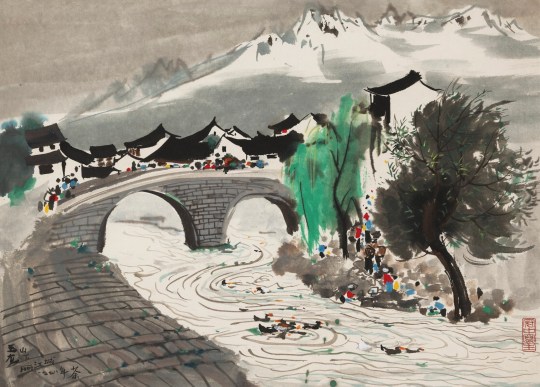
Wu Guanzhong 吴冠中 (China 1919-2010)
The Old Town of Lijiang (1978)
ink and colour on paper 37.5 x 53.5 cm
98 notes
·
View notes
Text
Since many people enjoyed the Peach Blossom Springs build by Epicwork, here are some more builds that they’ve made over the years, along with some historical background on the builds, if anyone is interested:
The Thousand-Year Capital City - Luoyang (千年帝都·洛阳)
undefined
youtube
In ancient times, Luoyang served as capital city in Xia dynasty/夏朝 (2070 BC - 1600 BC; the existence of this dynasty is debated among scholars due to insufficient archaeological evidence), Shang dynasty/商朝 (1600 BC - 1046 BC; Luoyang was one of the two capital cities), Western Zhou dynasty/西周 (1046 BC - 771 BC; Luoyand was again one of two capital cities), Eastern Zhou dynasty/东周 (770 BC - 256 BC), Western Han dynasty/西汉 (briefly starting from 202 BC), Eastern Han dynasty/东汉 (25 AD - 220 AD), Kingdom (dynasty if going by the traditional official historiography) of Wei/曹魏 (220 AD - 266 AD; this is part of the famous Three Kingdoms period), Western Jin dyansty/西晋 (266 AD - 213 AD), Northern Wei dynasty/北魏 (386 AD - 534 AD; Luoyang became its capital in 494 AD), Sui dynasty/隋朝 (581 AD - 618 AD; Luoyang became the capital in 605 AD), Tang dynasty/唐朝 (618 AD - 907 AD, including the brief Zhou/武周 during which Wu Zetian was the first female emperor; Luoyang was the capital or one of the capitals starting from 657 AD), Later Liang dynasty/后梁 (907 AD - 923 AD), Later Tang dynasty/后唐 (923 AD - 937 AD), Later Jin dynasty/后晋 (936 AD - 947 AD).
The build here (minus the giant dragon statue of course) is based on Luoyang during Tang dynasty, possibly around the time when Emperor Gaozong or Wu Zetian was in power, due to the presence of the enormous standing Buddha statue (Wu Zetian believed in Buddhism, while most other emperors of Tang dynasty put more emphasis on Daoism, since they claimed to be descendants of the founder of Daoism, Laozi, whose real name was Li Er).
The Garden of Gardens - The Old Summer Palace (万园之园·圆明园)
undefined
youtube
The Old Summer Palace or Yuanmingyuan/圆明园 was a garden constructed during Qing dynasty that incorporated elements of Chinese architecture and Western architecture. The garden used to contain many priceless artifacts, the vast majority of which were stolen by British and French forces in 1860, and the garden itself was burned to the ground and thoroughly destroyed. As a result of this purposeful destruction, only a few broken pillars remained, standing as a grim reminder to the plundering and destruction that were the results of Western imperialism.

Epicwork tried to reference old photos and historical records when recreating the garden here in this build.
The quote at the beginning of the video comes from a letter written by Victor Hugo to Captain Butler (boldened portion is the quote):
To Captain Butler
Hauteville House,
25 November, 1861
You ask my opinion, Sir, about the China expedition. You consider this expedition to be honourable and glorious, and you have the kindness to attach some consideration to my feelings; according to you, the China expedition, carried out jointly under the flags of Queen Victoria and the Emperor Napoleon, is a glory to be shared between France and England, and you wish to know how much approval I feel I can give to this English and French victory.
Since you wish to know my opinion, here it is:
There was, in a corner of the world, a wonder of the world; this wonder was called the Summer Palace. Art has two principles, the Idea, which produces European art, and the Chimera, which produces oriental art. The Summer Palace was to chimerical art what the Parthenon is to ideal art. All that can be begotten of the imagination of an almost extra-human people was there. It was not a single, unique work like the Parthenon. It was a kind of enormous model of the chimera, if the chimera can have a model. Imagine some inexpressible construction, something like a lunar building, and you will have the Summer Palace. Build a dream with marble, jade, bronze and porcelain, frame it with cedar wood, cover it with precious stones, drape it with silk, make it here a sanctuary, there a harem, elsewhere a citadel, put gods there, and monsters, varnish it, enamel it, gild it, paint it, have architects who are poets build the thousand and one dreams of the thousand and one nights, add gardens, basins, gushing water and foam, swans, ibis, peacocks, suppose in a word a sort of dazzling cavern of human fantasy with the face of a temple and palace, such was this building. The slow work of generations had been necessary to create it. This edifice, as enormous as a city, had been built by the centuries, for whom? For the peoples. For the work of time belongs to man. Artists, poets and philosophers knew the Summer Palace; Voltaire talks of it. People spoke of the Parthenon in Greece, the pyramids in Egypt, the Coliseum in Rome, Notre-Dame in Paris, the Summer Palace in the Orient. If people did not see it they imagined it. It was a kind of tremendous unknown masterpiece, glimpsed from the distance in a kind of twilight, like a silhouette of the civilization of Asia on the horizon of the civilization of Europe.
This wonder has disappeared.
One day two bandits entered the Summer Palace. One plundered, the other burned. Victory can be a thieving woman, or so it seems. The devastation of the Summer Palace was accomplished by the two victors acting jointly. Mixed up in all this is the name of Elgin, which inevitably calls to mind the Parthenon. What was done to the Parthenon was done to the Summer Palace, more thoroughly and better, so that nothing of it should be left. All the treasures of all our cathedrals put together could not equal this formidable and splendid museum of the Orient. It contained not only masterpieces of art, but masses of jewelry. What a great exploit, what a windfall! One of the two victors filled his pockets; when the other saw this he filled his coffers. And back they came to Europe, arm in arm, laughing away. Such is the story of the two bandits.
We Europeans are the civilized ones, and for us the Chinese are the barbarians. This is what civilization has done to barbarism.
Before history, one of the two bandits will be called France; the other will be called England. But I protest, and I thank you for giving me the opportunity! the crimes of those who lead are not the fault of those who are led; Governments are sometimes bandits, peoples never.
The French empire has pocketed half of this victory, and today with a kind of proprietorial naivety it displays the splendid bric-a-brac of the Summer Palace. I hope that a day will come when France, delivered and cleansed, will return this booty to despoiled China.
Meanwhile, there is a theft and two thieves.
I take note.
This, Sir, is how much approval I give to the China expedition.
Regrettably, none of the priceless artifacts that were stolen had been returned by any of the countries involved, and instead became a major part of the museum collections of various Western countries. The small portion of artifacts that had returned to China were mostly bought from auctions by Chinese people. To this day, British and French mainstream media refuse to fully acknowledge the plundering and destruction of Yuanmingyuan.
Lijiang, the Ancient Mystic City (中国风·丽江古镇)
undefined
youtube
I thought the translation for the title should’ve been “the Ancient Mystical City”, but it’s okay. This is Epicwork’s first Chinese architecture-style build that became popular. This build is based on the real life Old Town of Lijiang (丽江古镇), which is a UNESCO World Heritage Site. The real life Old Town of Lijiang has architecture that incorporated features of Han culture and Naxi culture.

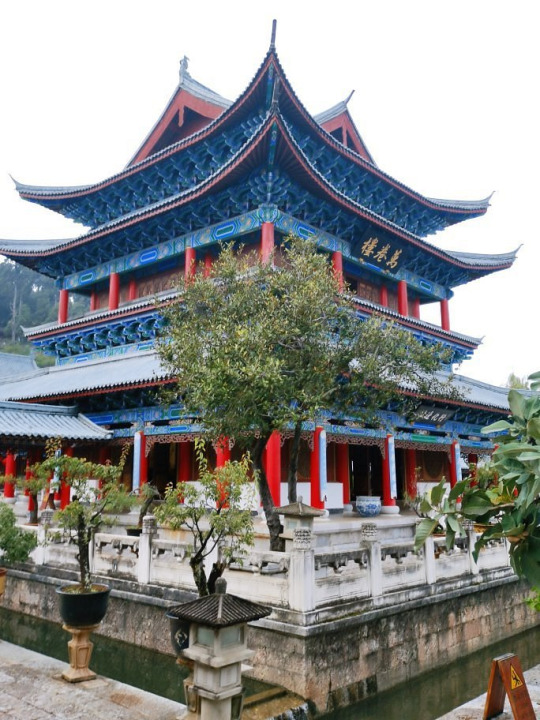
Finally, a build that doesn’t really fit the topic of this blog, but personally I really liked it, and just in time for October...
Devil Island (恶魔岛)
undefined
youtube
The cathedral in this build is based on Duomo di Milano.
#epicwork china#minecraft builds#the thousand year capital city Luoyang#the garden of gardens The Old Summer Palace#the ancient mystic city Lijiang#devil island#luoyang#the old summer palace#lijiang#old town of lijiang#chinese architecture#gothic architecture#chinese history#chinese culture#minecraft#yuanmingyuan#Youtube
157 notes
·
View notes
Text
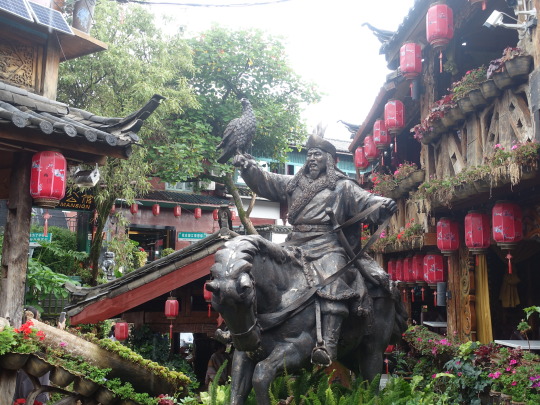
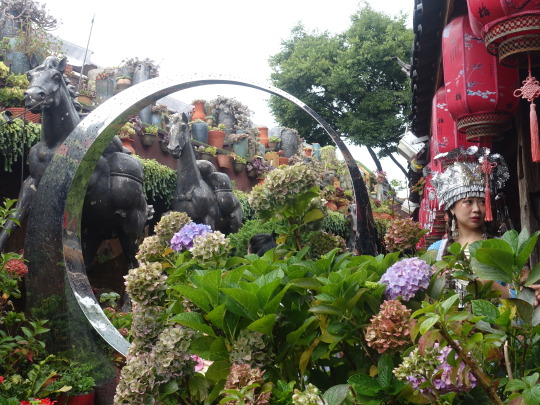
8 notes
·
View notes
Text
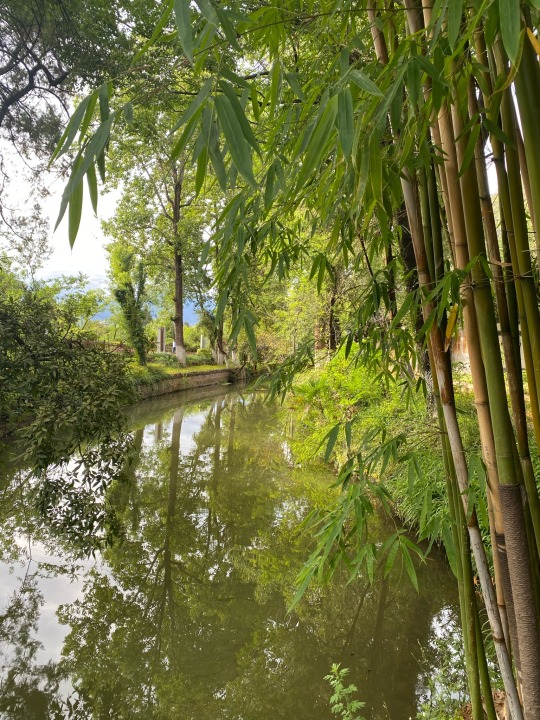
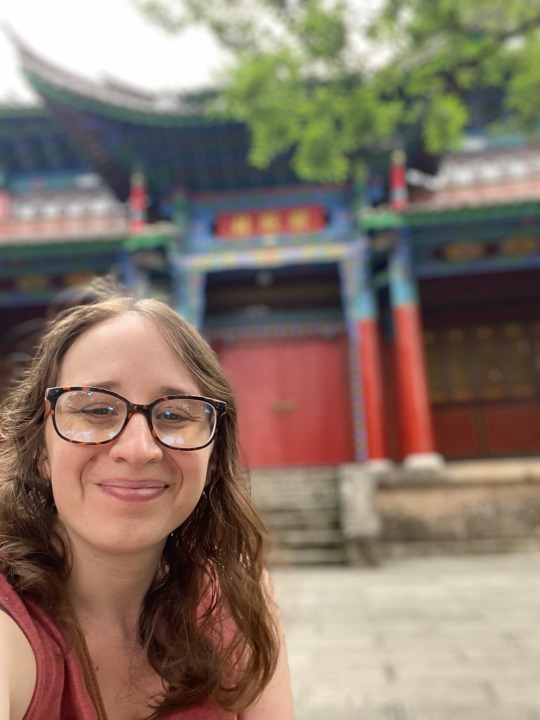
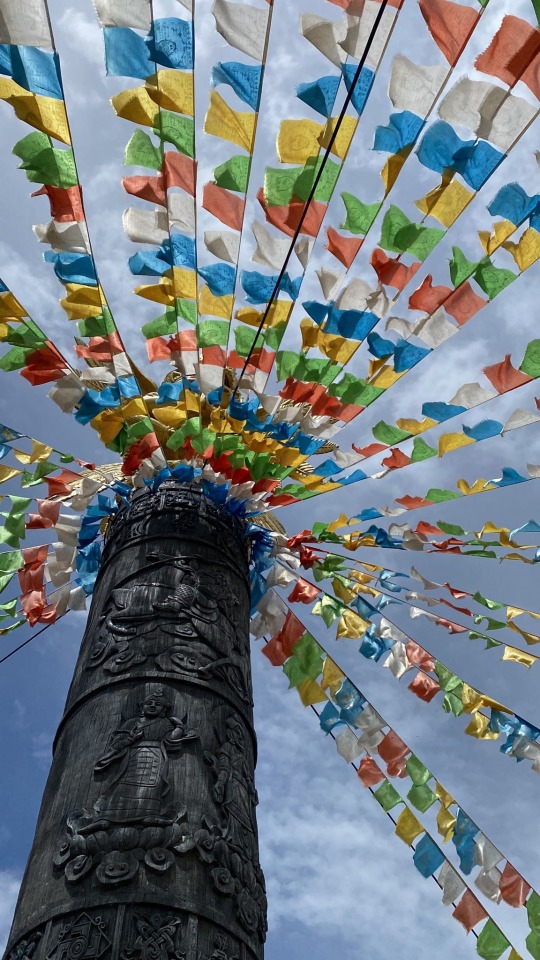
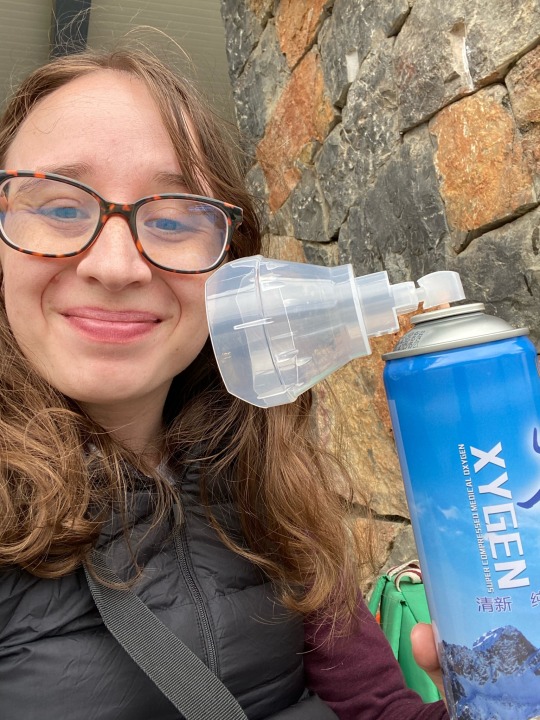
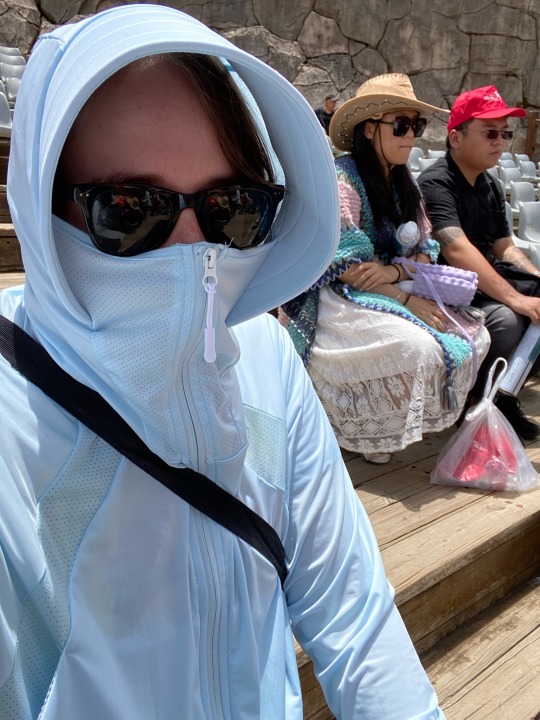
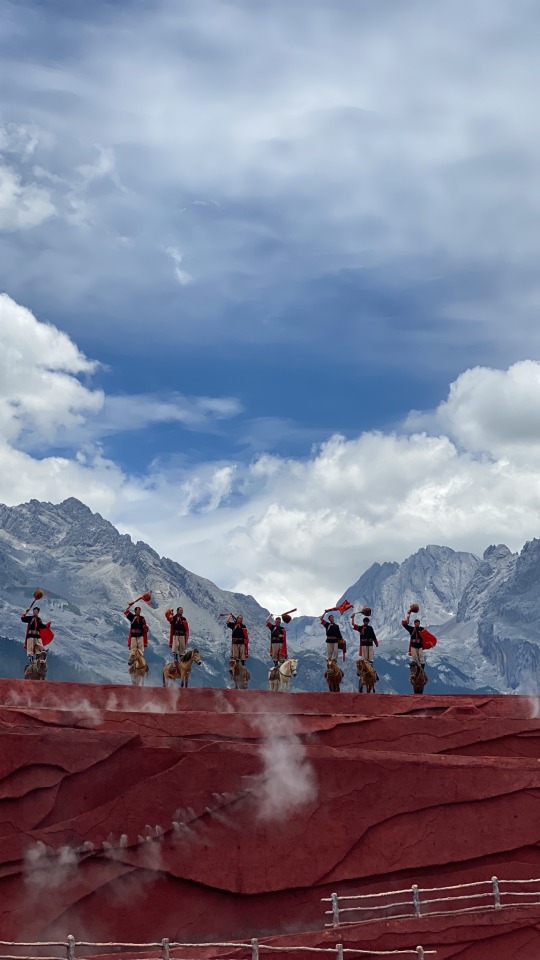
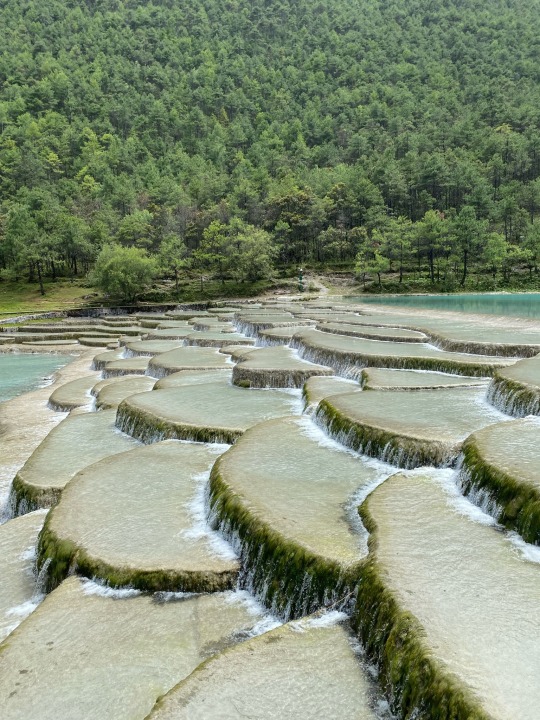
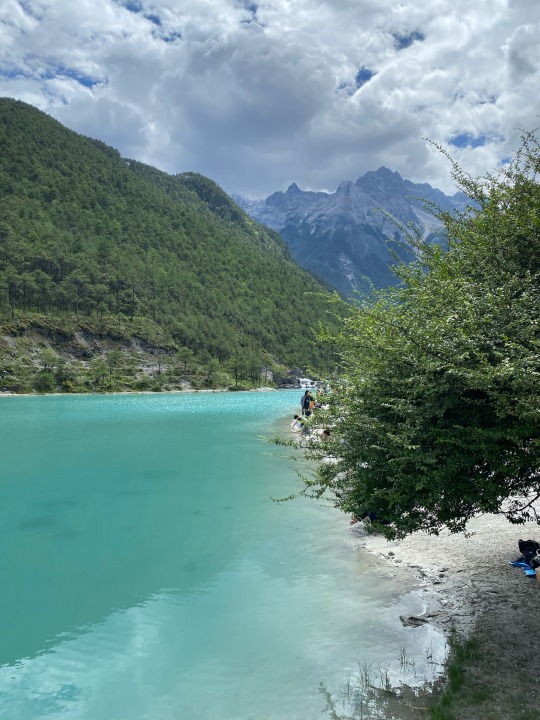
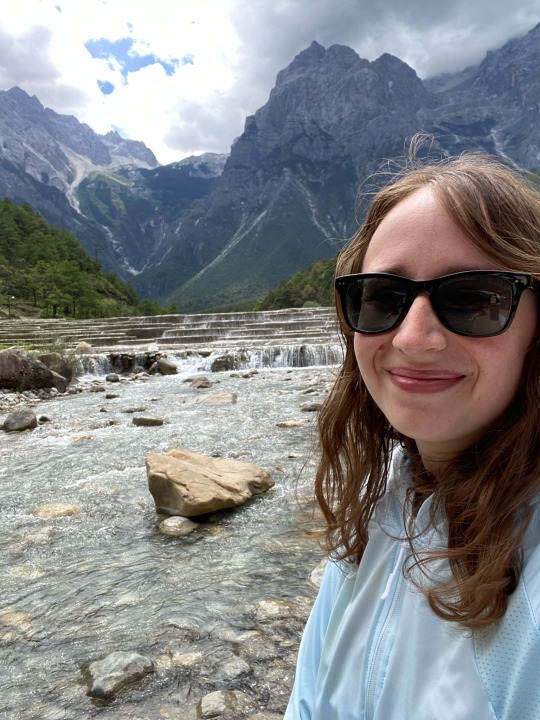
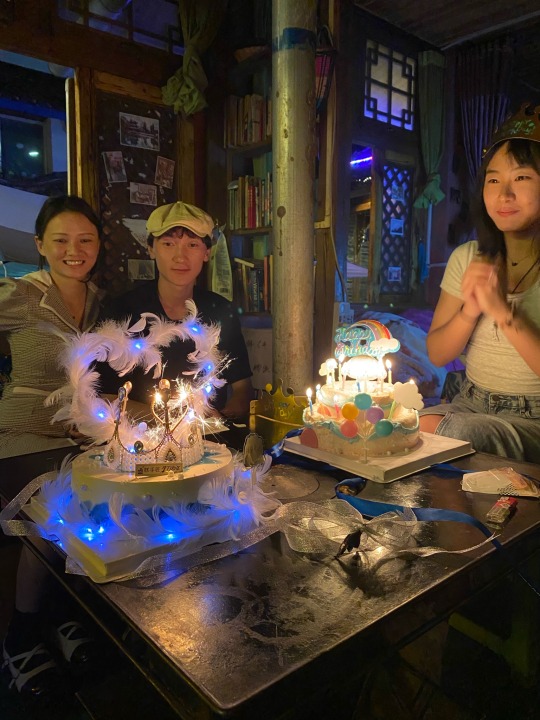
Lijiang Part 2
Alright I think with this post I am pretty much caught up.
After coming back from Tiger Leaping Gorge on Friday I made my way back to Lijiang where I’ve been for the last 3 days. Friday evening was nice and quiet. I stayed in my hotel. Every night all the staff in the hotel have homemade dinner together and invite any guests that want to join them which is really cool, and it happened to me one of the staff’s birthday. I had just finished eating dinner and they went “好的! 蛋糕!” ok, cake! And at the door was a cake delivery of two giant cakes. I was so surprised, but given that I can’t understand the majority of what people’s conversations are I guess it shouldn’t be that surprising. We celebrated the staff member’s birthday which was super cute.
On Saturday I had a rest day. In the afternoon I went over to Black Dragon Pool Park, one of the bigger city parks here. I walked around for a while and got noodles and bubble tea from a food stand and sat by the pond while catching up on writing and listening to a busker play. It was very nice.
On Sunday I ventured out of town to the nearby mountain, Jade Dragon Snow Mountain. Weirdly I was able to take the regular city bus there even though it was like 30 km outside of town. It was very seamless once I found the right bus.
As generally tends to happen on the tail end of long trips I’ve been pretty tired the last few days so I wasn’t really up to pushing myself to leave really early in the morning to go visit the mountain or spend the whole day doing things. But as a result when I got there it was very crowded and due to how big the crowds were I couldn’t see much before closing time, which, honestly I’m fine with.
Jade Dragon Snow Mountain’s peak has significant elevation, I’m not sure what the elevation actually was or what it was at the base of the mountain but people were extremely prepared for it. I’d never seen this before, but everyone had small individual canned oxygen tanks they just took some breaths from every now and again to avoid altitude sickness. It was pretty cool and helped a lot with the altitude. Definitely could’ve used that for the 13,000+ ft elevation in Peru.
I had arrived too late in the day to visit the peak of the mountain, but I had some lunch at the base and saw a cultural performance which was pretty cool. They had over 100 performers from a variety of different ethnic groups in Yunnan and Tibet and they performed traditional dances. The stage was really cool set up against the mountains and the performance even had horses at one point.
I don’t know if this is a cultural thing or just this particular crowd of tourists thing or a me being cranky and sick of people thing but I got pretty annoyed at the people in the audience. People were just shoving and pushing left and right with very little regard for or awareness of personal space, talking loudly on the phone all throughout, and just getting up in the middle and walking around in front of the stage. So between all that it was kind of hard to see everything but it was still pretty cool. I’ve noticed a lot of shoving and pushing and lack of personal space especially while waiting in lines here and I feel like its just normal here and I just need to get used to it.
Anyway after that I got on a bus to go visit a really cool lake at the base of the mountain called Blue Moon Bay. The water was so turquoise and clear it was very otherworldly. There were also these natural pools that reminded me a lot of the travertines in Pamukkale, Turkey. There were literally dozens of people taking their wedding photos and there were a lot of other people so it was pretty crowded but it was still cool to see.
The sun was really really bright up by the mountain due to the elevation. Here in China people are very very conscientious about sun protection, but instead of using sunscreen they use UV protectant clothing. Usually this involves a long jacket that zips up to cover your nose and mouth, arm coverings, gloves, a large brimmed hat, sunglasses and an umbrella. Some people even have full face masks (forehead to chin) with eye holes. This is rooted in colorism unfortunately as having paper white skin is seen as highly regarded here, people go to great lengths to avoid any amount of sun exposure and use skin whitening creams in addition to this.
Since I’d gotten sunburned at least 3 times already this trip I finally caved and got a UV jacket to go to the mountain and it actually worked really well. The only part of me that got burned was my nose and chin because I didn’t zip it up all the way. When I went to buy it it was a weird interaction at the shop. It was supposed to be about 80 yuan, the old man at the shop I guess recognized me or something? I’d been in the shop a couple of times already and talked a little bit to him before. He only charged me 50 yuan for the jacket and a bottle of water, but then after I paid him digitally he got all worked up and started waving his hands all over the place. Then he took 40 yuan from the register and put it in my hand and shooed me away, so he essentially gave me the jacket for free. I was so confused and hope I didn’t misunderstand what was happening but I think he was just being really nice.
So anyway, shout out to that old man for helping me avoid getting burned yet again.
Anyway, sorry for the tangent, the sun was super super bright and intense at the mountain so it was a weird combination of being cold and hot at the same time. I started making my way back to town which involved a truly enormous claustrophobic line to get on the bus back down the mountain and then another to get back to town.
Back in town I wandered around the ancient town one more time and bought some dried tea to take home. It was a huge production involving everyone in the shop and a little kid running to get his mom who spoke English. The lady in the shop ended up giving me a rose cake for free which was nice. Yunnan specializes in a lot of foods one of which is flower cakes, little warm cakes with a flower infused filling.
I walked around the snack market which had a lot of interesting local foods. I tried a “milk fan” which is essentially fried milk on a stick. They take the milk and separate it out through a very complex process until it is semi-solid and then fry it. It was very interesting, it tasted like yoghurt or cheese but was chewy and crunchy.
Back at my hotel the owner had made homemade mushroom soup for dinner, which Yunnan also specializes in. It was very yummy. I was also very surprised because there was a French person staying at my hotel and the owner of the hotel asked me to go translate what he wanted to say to the French person and I was able to translate a whole interaction. My Chinese is so so so basic I was very surprised I was able to sort of do that.
At dinner we were able to actually hold somewhat of a conversation this time which was nice. I really do want to get to know and talk to people here but the language barrier has been so intense its been hard to have anything more than very basic communications.
One thing that I am starting to admire about China is how fiercely independent and for lack of a better word, self-sufficient, it is. I feel like a lot of the rest of the world has been impacted a lot by globalization and homogenization. You can go almost anywhere in the world and hear the same popular music playing, see the same exact brands of shops, and see the same 5 chain restaurants and use the same apps and speak English and be understood. But that is absolutely not the case in China. There are a few global brands like KFC and Starbucks that have managed to establish themselves here but it is rare. Other than that, China does absolutely everything on its own terms and you really can’t get around just relying on English. China does just about everything without relying on outside influences and in many cases are way ahead of the curve compared to the rest of the world. China forces you to make a genuine effort to engage in their culture rather than adapting itself to suit foreigners, which I think is kind of cool and I haven’t seen that really anywhere else I’ve traveled.
There is of course a flip side to that. A big part of the reason China has their own version of everything is partially to avoid undue influence from the west and partly because the Chinese government has a very specific narrative it wants to push and so anything alternative to that is simply not allowed. There is no access to a lot of information online, media is heavily censored, and it is very very difficult for foreigners to get a visa to enter China. This results in a lot of people truly just not being aware of some alternative perspectives and ways of thinking and its hard for intercultural exchange to happen. Not saying it doesn’t happen, there are lots of students and teachers who go abroad or come from abroad and plenty of intergenerational immigrant families. But I can definitely see how one could go their whole life here without being exposed to a lot of people who are different from them and then you get situations of discrimination, racism, and even ethnic cleansing like what is happening in Xinjiang and no one talks about it or is aware of it. Protesting is illegal here.
Not saying the US is any better, we have a lot of problems as well and certainly don’t have clean hands either. There is a lot of censorship and discrimination and racism in the US as well. I don’t know where I’m going with this other than there is a lot of rhetoric in both the US and China that tends to demonize the other country and it sounds naïve but when you get down to it and are able to have an actual conversation with someone and have that person to person cultural exchange, we have a lot in common. The US and China both have a lot of very serious issues but its also not fair to conflate people with their governments, especially when they as individuals can do very little to impact what their government does. I guess it just reiterates for me how important education and cultural exchange are.
Anyway I don’t know where I was going with any of that word vomit, but I am currently en route to my final stop in China (but not of this trip): Xi’an. Will try to update before I leave in about 3 days.
#lijiang#yunnan#china#travel#solo travel#asia#blue moon bay#jade dragon snow mountain#black dragon pool park
5 notes
·
View notes
Photo
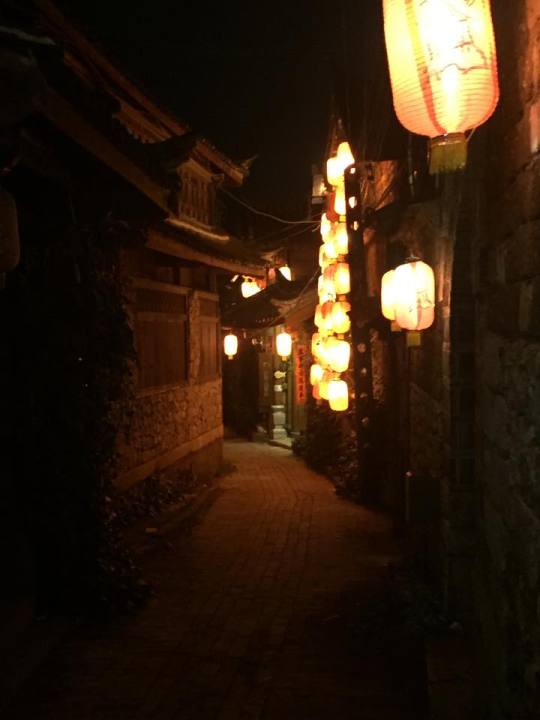
Shuhe, Yunnan, China, 2014-ish, photo by me
One of my favorite little old towns in Yunnan, mainly because Shuhe is just such a chill place. I wish I still had the original RAWs of a lot of these but unfortunately I only have lowish res copies. Still cool though. This is an “old town” just outside of Lijiang in Yunnan, but most of Shuhe is newer construction in an old style.
6 notes
·
View notes
Photo
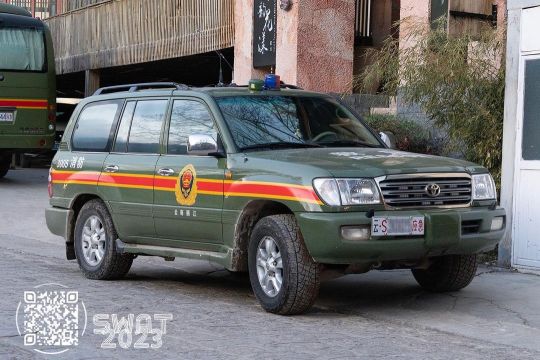
中國國家救援局森林消防 雲南省麗江市森林消防支隊 #中國救援 #森林消防 #12119 #Rescue #China #Lijiang #Toyota #landcruiser https://www.instagram.com/p/CrHdl1nBy3i/?igshid=NGJjMDIxMWI=
2 notes
·
View notes
Photo
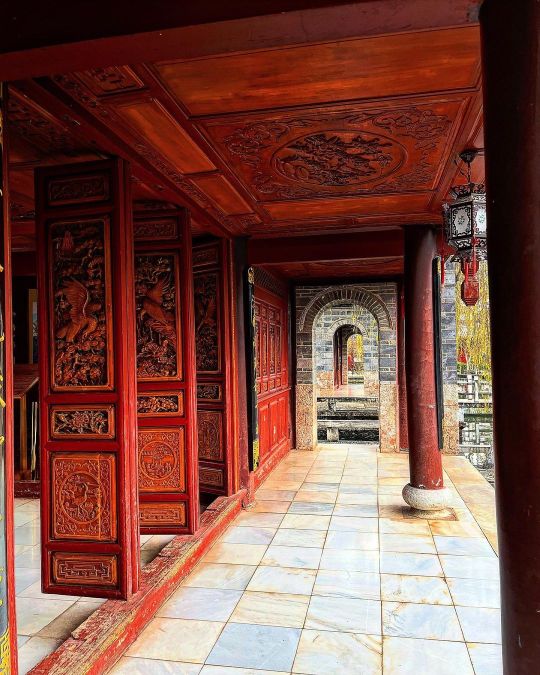
Lijiang ancient house and temple @yunnan_ecotours @ancient__china @ancientchina_._ lijiang ancient town #丽江古城 #中国 #云南 @yunnan_travel @amazing_yunnan @ancient_architecture_china #lijiang #travel #ancient #architecture #temple #chinesearchitecture #door #chinese @doors.of.china @chinairondoors @incredible_temples (at 丽江古镇) https://www.instagram.com/p/CgbKIvrucFS/?igshid=NGJjMDIxMWI=
1 note
·
View note
Link
Hylla Vintage Hotel has etched its name in history, becoming the first property in Southwest China to join The Leading Hotels of the World (LHW), an esteemed network of independent luxury hotels. Nestled amidst the captivating historic heart of Lijiang, a city renowned for its UNESCO World Heritage Sites, the Hylla Vintage Hotel offers an unparalleled gateway to a bygone era. Where History Meets Luxury: Unveiling Hylla Vintage Hotel's Unique Location Lijiang, the hotel's enchanting home, is a captivating blend of cultural heritage and breathtaking natural beauty. Standing at the foot of the Jade Dragon Snow Mountain, the southernmost glacier in Eurasia, the Hylla Vintage Hotel embodies the region's historical significance. Its location within Jietuolin, the original domain of the Muwangfu family, who led the Nakhi people, adds another layer of historical charm. This very location finds mention in the Ming Dynasty chronicle, "The Travels of Xu Xiake", further solidifying its significance. Beyond its historical significance, Hylla Vintage Hotel boasts breathtaking views of the surrounding landscape, making it a haven for nature enthusiasts and travelers seeking an exceptional escape. The hotel's commitment to respecting the natural environment and local traditions fosters a sense of connection with the community and its rich tapestry of stories. This dedication to responsible tourism has earned Hylla Vintage Hotel several prestigious accolades, including AHEAD, DEZEEN, LILA, and LI Awards, solidifying its position as a leader in both domestic and international hospitality. Stepping Back in Time: A Glimpse into Hylla Vintage Hotel's Interiors Stepping inside the Hylla Vintage Hotel is akin to embarking on a journey through time. The hotel's interiors are a meticulously curated haven, featuring a collection of modernist furniture dating from the 1930s to the 1960s. This historical charm seamlessly blends with an eclectic mix of vintage furnishings, literature, artworks, and artisanal objects sourced from around the world. This unique combination creates a living museum of vintage culture, transporting guests to a bygone era. The hotel's commitment to historical authenticity extends beyond aesthetics. Modern amenities and services are woven into the fabric of the experience, ensuring guests enjoy a luxurious and comfortable stay while immersing themselves in the richness of the past. This juxtaposition of history and modern comforts allows Hylla Vintage Hotel to offer a truly enriching and authentic travel experience. Beyond the Walls: Exploring the Enchanting Surroundings Lijiang offers a plethora of experiences for guests venturing beyond the hotel's walls. Explore the city's well-preserved Old Town, a UNESCO World Heritage Site, and wander through its maze-like streets lined with traditional shops and architecture. Immerse yourself in the local culture by visiting the Black Dragon Pool, a serene lake surrounded by temples and gardens, or embark on a scenic hike to the Baishuitai (White Water Terraces), a breathtaking natural wonder. For those seeking adventure, the Jade Dragon Snow Mountain offers numerous hiking and trekking options, catering to various experience levels. Additionally, the Three Gorges Dam, one of the largest hydroelectric projects in the world, is a short distance away, offering a glimpse into modern engineering marvels. An Ideal Sanctuary for the Discerning Traveler Hylla Vintage Hotel's unique combination of historical charm, luxurious amenities, and a commitment to local culture makes it an ideal destination for discerning travelers seeking an unparalleled experience. Whether you're captivated by history, inspired by nature, or simply seeking a unique and enriching escape, Hylla Vintage Hotel offers a captivating haven in the heart of Lijiang. FAQs Q: What makes Hylla Vintage Hotel unique? A: Hylla Vintage Hotel is unique for its combination of historical charm, reflected in its vintage design and location, with modern amenities and a commitment to responsible tourism and local culture. Q: Does Hylla Vintage Hotel offer any dining options? A: While the information provided doesn't explicitly mention on-site dining options, luxury hotels like Hylla Vintage Hotel typically offer various dining options, including restaurants, bars, and room service. It's recommended to visit the hotel's website or contact them directly for details about their culinary offerings. Q: How can I book a stay at the Hylla Vintage Hotel? A: The information provided doesn't specify booking options, but you can usually book a stay at Hylla Vintage Hotel through various channels, including: The hotel's official website Online booking platforms like Booking.com or Expedia Contacting the hotel directly by phone or email Q: What is The Leading Hotels of the World (LHW)? A: The Leading Hotels of the World (LHW) is an exclusive collection of independent luxury hotels around the globe. Membership in LHW signifies exceptional quality, personalized service, and unique experiences for guests.
#authentictravelexperience#BaishuitaiWhiteWaterTerraces#BlackDragonPool#culturalheritage#historicalhotel#HyllaVintageHotel#HyllaVintageHotelJoins#JadeDragonSnowMountain#Jietuolin#Lijiang#luxuryaccommodation#Nakhipeople#responsibletourism#SouthwestChina#TheLeadingHotelsoftheWorld#TheTravelsofXuXiake#ThreeGorgesDam#UNESCOWorldHeritageSite#vintagedesign
0 notes
Text
by CW Ye on Flickr.Heilong Tan Park in Lijiang, China.
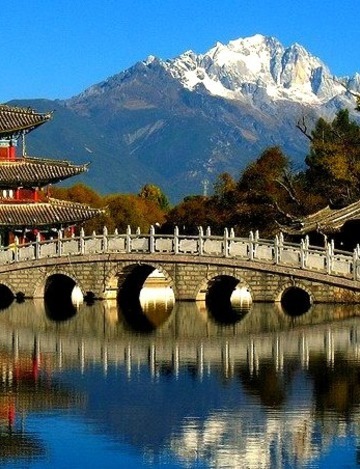
0 notes
Text
😍 Una delle città più belle, in Cina, è Lijiang, nella meravigliosa Provincia dello Yunnan. Soprattutto per chi ama i fiori! 🌺
🇨🇳 Come scrive il 人民日报: «Immergiti nella notte profonda e cammina in un paradiso floreale nella città di Lijiang» ❤️
🌸 Iscriviti 👉 @collettivoshaoshan 😘
😍 One of the most beautiful cities in China is Lijiang, in the wonderful Yunnan Province. Especially for those who love flowers! 🌺
🇨🇳 As the 人民日报 writes: «Immerse yourself in the deep night and walk in a floral paradise in Lijiang city» ❤️
🌸 Subscribe 👉 @collectivoshaoshan 😘
1 note
·
View note
Text
by CW Ye on Flickr.Heilong Tan Park in Lijiang, China.
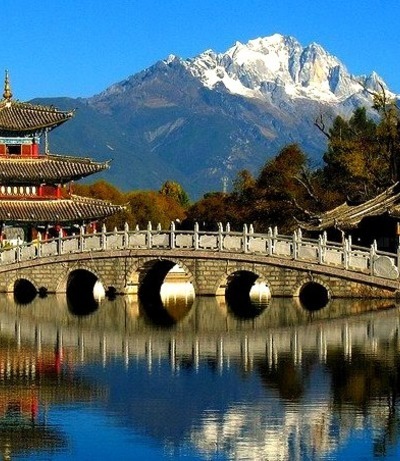
0 notes
Text
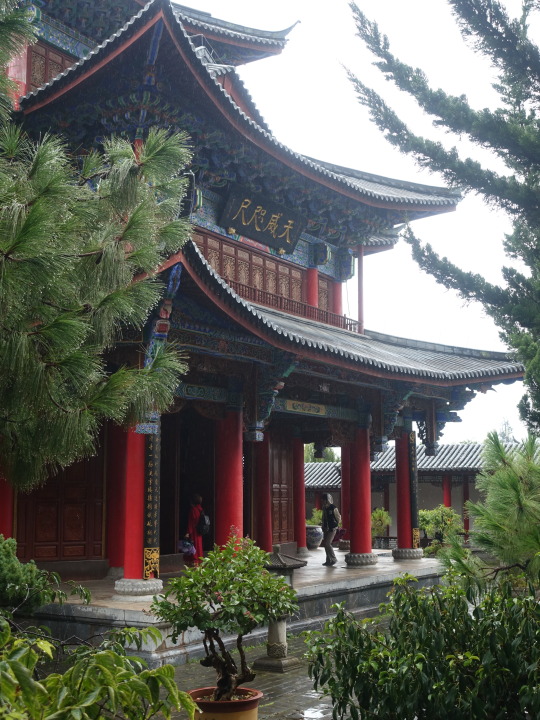
5 notes
·
View notes
Text
by CW Ye on Flickr.Heilong Tan Park in Lijiang, China.

0 notes
Text

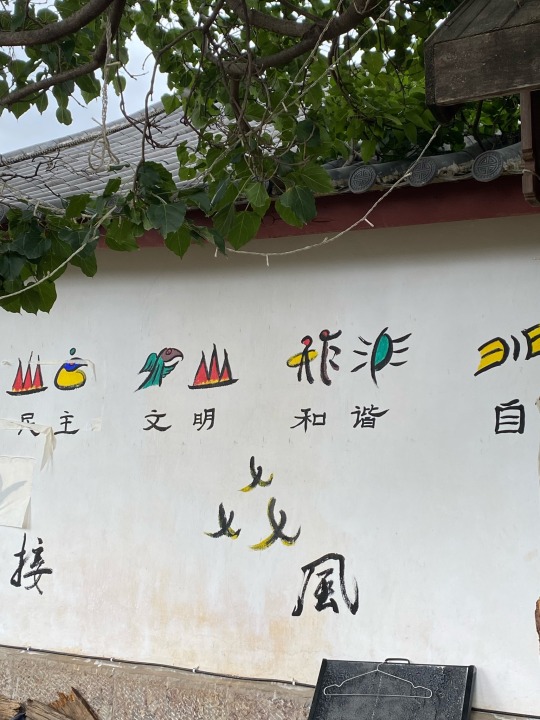
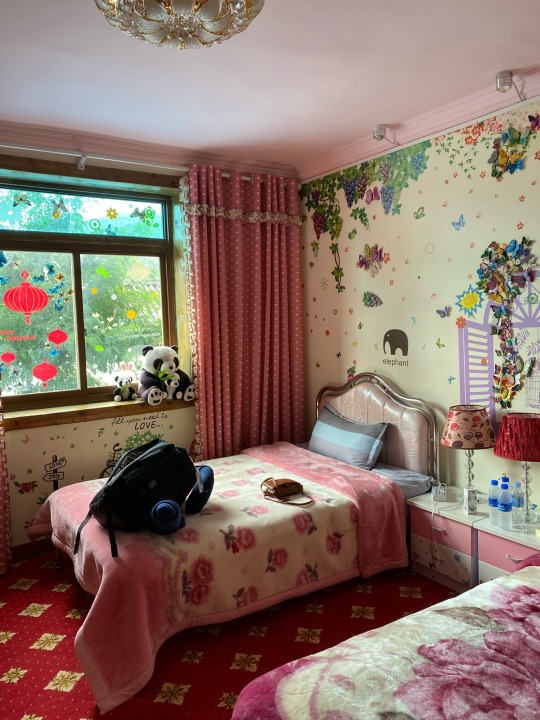
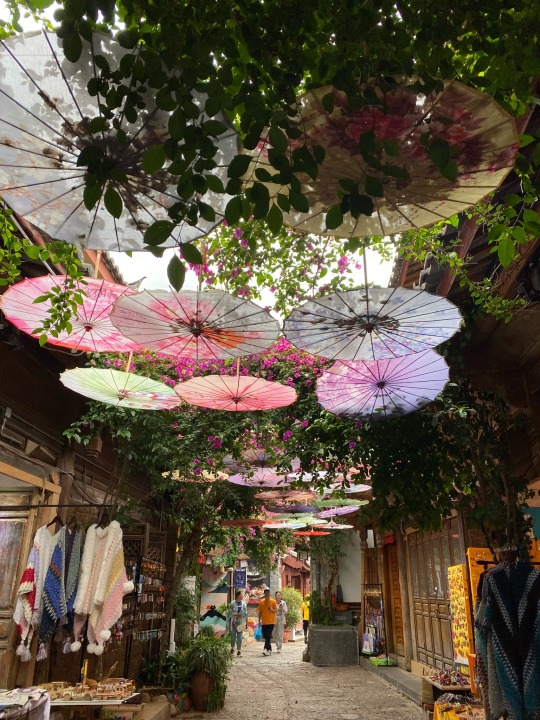


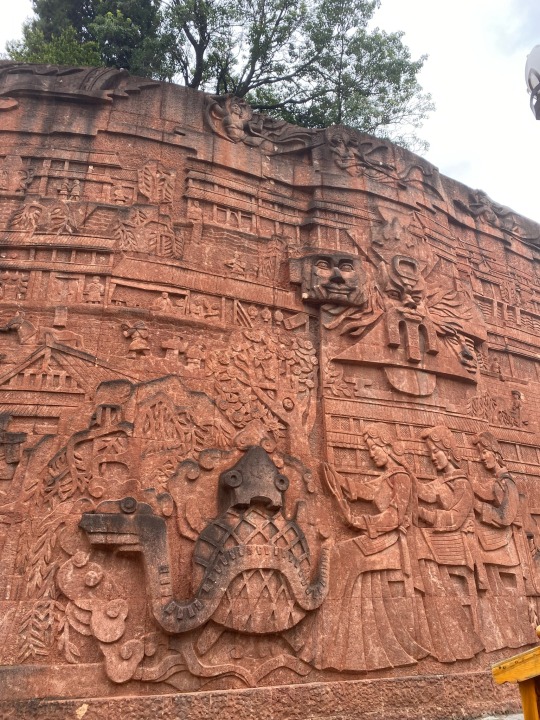
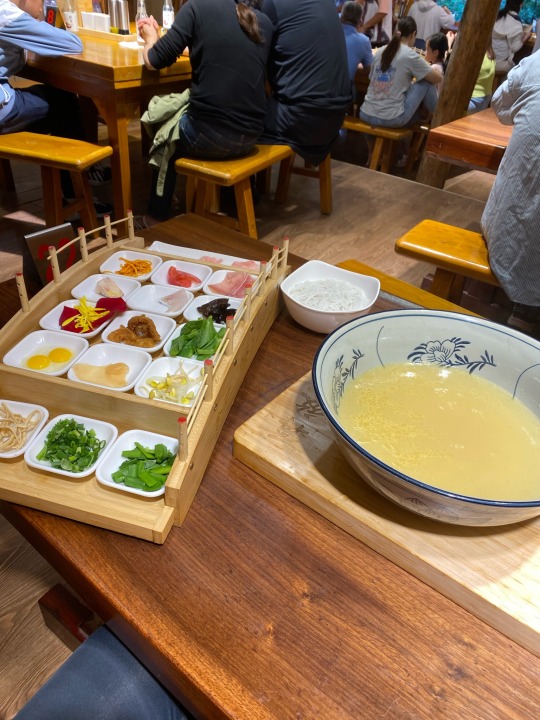
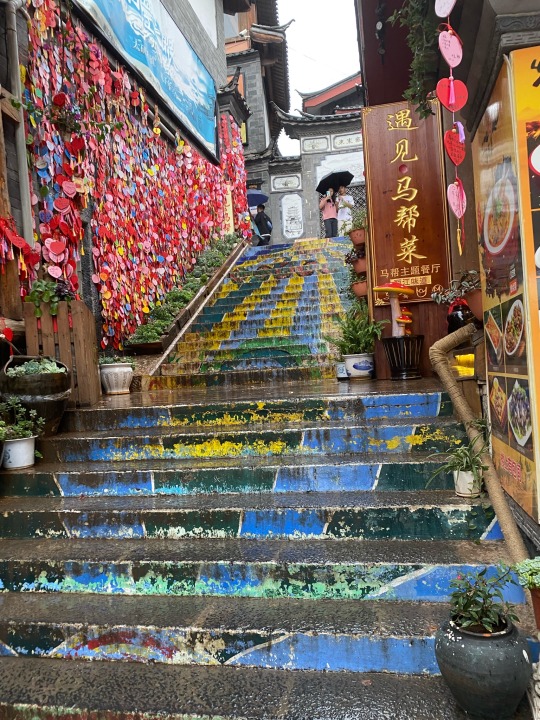
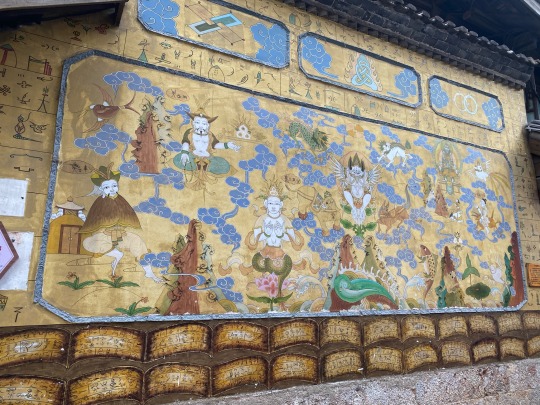
Lijiang Part 1
I’m catching up on the last week so bear with me. Post 2 of 3.
On Monday I arrived in Lijiang. Lijiang is in the province of Yunnan in southwest China, very close to the Himalayas and sections of which include Tibet.
The climate here is such a relief after the heat and humidity of my last few stops. It is consistently 70 degrees and cloudy, occasional rain, and no humidity. It is amazing. The winters here are very intense but the summer weather here is some of the best in China.
Culturally, Yunnan is very different from other areas of China. China has hundreds of different ethnic groups, the Han group is the most culturally dominant and has historically tried to make all of China more culturally homogeneous, but more remote areas have managed to maintain their own culture. The local ethnic group here is called the Naxi.
I learned that the Naxi are the only living culture to still use a hieroglyphic language! There are only 10 fluent readers of this language left, but most of the city signs here in Lijiang are written in Mandarin, English, and Naxi hieroglyphs which is pretty cool. It’s different from Mandarin which is one of the very few logographic languages currently in use, meaning instead of an alphabet they use symbols to represent sounds or ideas. The symbols can be related to the idea but usually aren’t. Naxi uses picture hieroglyphs to represent ideas and the pictures directly correlate to the idea. So it’s similar but also very different. The linguistic nerd in me found that very fascinating.
I spent Monday and Tuesday getting acclimated to Lijiang. The culture in Yunnan is extremely informal and laid back. When I got to my hotel it was very interesting, the owner wasn’t there and there was a group of teenagers and twenty somethings who I guess worked at the hotel or maybe are just friends with the owner. Still unclear about that. But no one had any idea I was coming or spoke English. So we communicated via text messages and they told me to join them for lunch. Which involved a lot of poorly translated texts back and forth and awkward giggling from the teenagers. That lasted for a little over an hour. Then they showed me to my room, which was decorated 100% covered in cutesy stickers and fluffy pink things and had rainbow mood lighting but no soap, towels, or toilet paper. I asked if I should pay for the room and they were like ‘oh you can do that later’ i also asked if i needed a key and they were like no its fine. Then they went to go hunt wild mushrooms and told me to come back for dinner to eat the mushrooms, and through a bad translation on google translate came out as ‘come to dinner there will be lots of wild bacteria’. They gave me several cartons of milk which Yunnan is famous for along with mushrooms and then went on their way.
We did in fact have dinner later and enjoyed wild mushrooms and other very very spicy homemade Naxi dishes which Yunnan is famous for. We all sat in a crowded circle around a tiny table and it was all very homey and welcoming despite us not really being able to talk to each other.
The next day I explored Lijiang Ancient Town. It’s been around since the 1300s and was a hub of trade along the Silk Road. Nowadays it is very touristy and crowded, but nothing compared to Fenghuang. At least it was rainy and cool outside. The Ancient Town was very beautiful and I got lost exploring it for several hours.
I had one mishap where I tried to go to a museum. Most of the information available online that I can find about China is from 2019 or earlier, so when the border closed, so a lot of it is now outdated. I took a Didi (Chinese version of uber) to the museum but then realized it was way farther outside of town than I had thought. After I got dropped off I realized that the museum while open was abandoned and overgrown with wildlife, there wasn’t anyone around and there was just cornfields for miles. There was an enthusiastic dog that followed me around the whole time which was comforting. I somehow managed to get a Didi back to town thankfully, I was worried I wouldn’t be able to get one and my phone signal was pretty bad.
I ended the day by eating Lijiang’s famous rice noodles in the Ancient Town , which involves getting a truly enormous bowl of broth, cold rice noodles in a separate bowl, and a tray of dozens of ingredients. You then add things to the broth. Kind of like hot pot. It was very good but very huge. The rain really picked up on my walk back so I hid out in what can only loosely be called a bookstore. They had lots of books but they were all on shelves at the top of the wall where no one could reach them and seemed like they were just there for show. I accidentally ordered a mocha and drank it while the rain poured down. It was nice but I never drink coffee so it was definitely hard to sleep that night.
Tiger Leaping Gorge was my next stop for the next few days, this post is already too long so I’ll add that wild ride to a separate post. I was there for 3 days and now am back in Lijiang for 3 more days until I leave for my next stop.
3 notes
·
View notes




